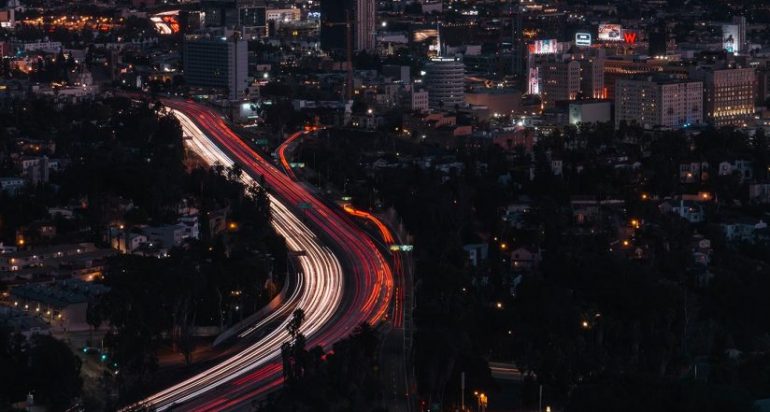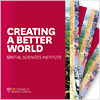Your evening commute in Los Angeles is probably a lot longer than your morning drive, even though it’s essentially the same trip in reverse. Now research from USC bears that out.
Crosstown, a research project involving the USC Annenberg School for Communication and Journalism, the USC Viterbi School of Engineering and the USC Dornsife College of Letters, Arts and Sciences, examined 18 of the city’s busiest freeways over a full year.
Morning commutes were faster almost 80 percent of the time in 2017, based on average speed in each direction.
Evening commutes were 14 percent slower on average, compared to the same morning commute in reverse.
L.A. traffic and quality of life
Crosstown is an ongoing research project that mines data on key quality of life indicators in Los Angeles, such as traffic, crime and air quality. The project is an effort between Cyrus Shahabi of USC Viterbi’s Integrated Media Systems Center, Yao-Yi Chiang of USC Dornsife’s Spatial Sciences Institute and Gabriel Kahn of the USC Annenberg School of Journalism.
“We’re trying to put some hard numbers behind things that Angelenos experience every day,” Kahn said. “Many of us might experience that our evening commute is worse than the mornings. We’re trying to figure out exactly by how much and why.”
Why L.A. traffic is so bad in the evening
There are multiple factors that make evening commutes longer. Why is L.A. traffic so bad during rush hour at night? According to experts at Caltrans and Metro, perhaps the biggest impact is that morning commuters go straight to work or school. In the evening, people often run errands or go to dinner, staying on the road and clogging lanes.
If you’ve driven in Los Angeles, you’ve likely contributed to this analysis. The numbers come from the Archived Data Management System, which stores millions of signals every hour as it records the flow of traffic across the county.
Driving data and your commute
Most of the input comes from thousands of inductive-loop traffic detectors deployed across the county. You’d recognize them as the black circles embedded in the blacktop of city streets and on freeways.
To process all this data, USC’s Integrated Media Systems Center built Transdec, which can process massive amounts of GPS trajectories to analyze a variety of performance metrics. Transdec is funded by funded by Metro and USC’s METRANS Transportation Center.
“The data we’re looking at — freeway speeds across Los Angeles going back more than five years — is massive,” said Mingxuan Yue, a research assistant at the Integrated Media Systems Center. “But we’ve formulated it so that we can compare what’s happening on different freeways at exactly the same moment in time. That allows us to spot trends and changes.”
Funding for Crosstown was provided by the Annenberg Foundation.




